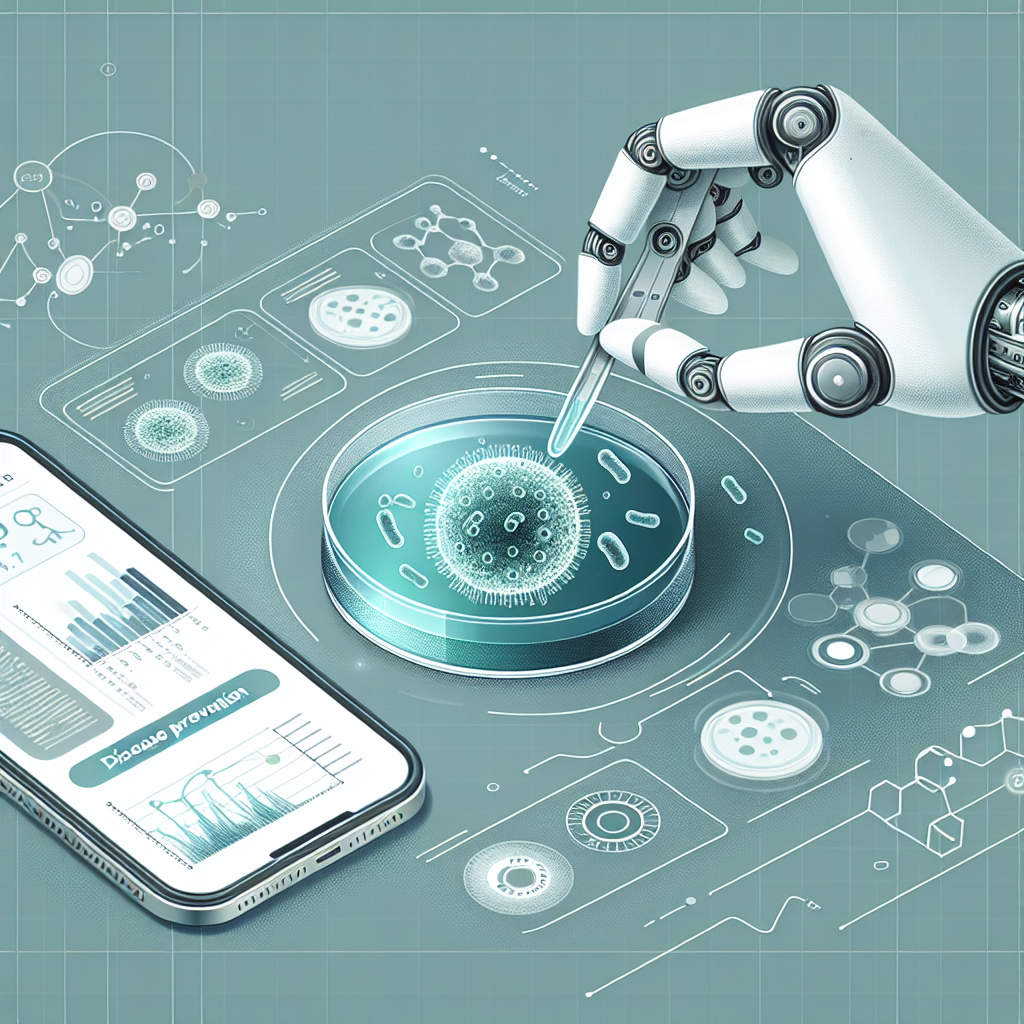Artificial Intelligence (AI) has been playing an increasingly important role in the prevention and control of infectious diseases. With the rise of global pandemics such as COVID-19, the need for advanced technology to help monitor, predict, and combat infectious diseases has become more evident than ever. AI integration in healthcare systems has the potential to revolutionize the way we detect, track, and respond to infectious diseases, ultimately saving lives and preventing future outbreaks.
One of the key ways AI is being used in the prevention of infectious diseases is through early detection and surveillance. AI algorithms can analyze vast amounts of data from sources such as social media, news reports, and electronic health records to identify potential outbreaks before they spread. By detecting patterns and trends in data, AI can help public health officials take timely action to contain the spread of infectious diseases.
For example, during the COVID-19 pandemic, AI tools were used to track the spread of the virus, predict hotspots, and identify at-risk populations. By analyzing data on travel patterns, population density, and healthcare resources, AI algorithms were able to provide valuable insights to policymakers and healthcare providers, helping them make informed decisions on how to allocate resources and implement preventive measures.
In addition to early detection, AI is also being used to develop predictive models for infectious diseases. By analyzing data on factors such as climate conditions, population movements, and human behavior, AI algorithms can forecast the spread of diseases and assess the potential impact on public health. These predictive models can help healthcare authorities prepare for outbreaks, allocate resources more efficiently, and implement targeted interventions to prevent the spread of infectious diseases.
Furthermore, AI is being used to enhance diagnostic capabilities for infectious diseases. By analyzing medical images, genetic data, and clinical records, AI algorithms can help healthcare providers identify pathogens, detect patterns of infection, and diagnose diseases more accurately and quickly. This can lead to earlier treatment, better patient outcomes, and reduced transmission of infectious diseases in the community.
Another important role of AI in preventing infectious diseases is in vaccine development and research. AI algorithms can analyze vast amounts of genomic data to identify potential vaccine candidates, predict how viruses may mutate, and optimize vaccine design. By accelerating the vaccine development process, AI can help healthcare providers respond more quickly to emerging infectious diseases and reduce the impact of future outbreaks.
Overall, AI integration in healthcare systems has the potential to significantly improve our ability to prevent and control infectious diseases. By leveraging the power of AI to analyze data, develop predictive models, enhance diagnostics, and accelerate vaccine development, we can better prepare for and respond to outbreaks, ultimately saving lives and reducing the burden of infectious diseases on society.
FAQs:
Q: How does AI help in early detection of infectious diseases?
A: AI algorithms can analyze data from various sources to identify patterns and trends that may indicate the presence of an infectious disease outbreak. By detecting these early warning signs, public health officials can take timely action to prevent the spread of the disease.
Q: Can AI predict the spread of infectious diseases?
A: Yes, AI algorithms can develop predictive models based on factors such as climate conditions, population movements, and human behavior to forecast the spread of infectious diseases. These models can help healthcare authorities prepare for outbreaks and implement targeted interventions to prevent the spread of diseases.
Q: How does AI enhance diagnostic capabilities for infectious diseases?
A: AI algorithms can analyze medical images, genetic data, and clinical records to help healthcare providers identify pathogens, detect patterns of infection, and diagnose diseases more accurately and quickly. This can lead to earlier treatment, better patient outcomes, and reduced transmission of infectious diseases.
Q: How does AI accelerate vaccine development for infectious diseases?
A: AI can analyze vast amounts of genomic data to identify potential vaccine candidates, predict how viruses may mutate, and optimize vaccine design. By speeding up the vaccine development process, AI can help healthcare providers respond more quickly to emerging infectious diseases and reduce the impact of future outbreaks.

